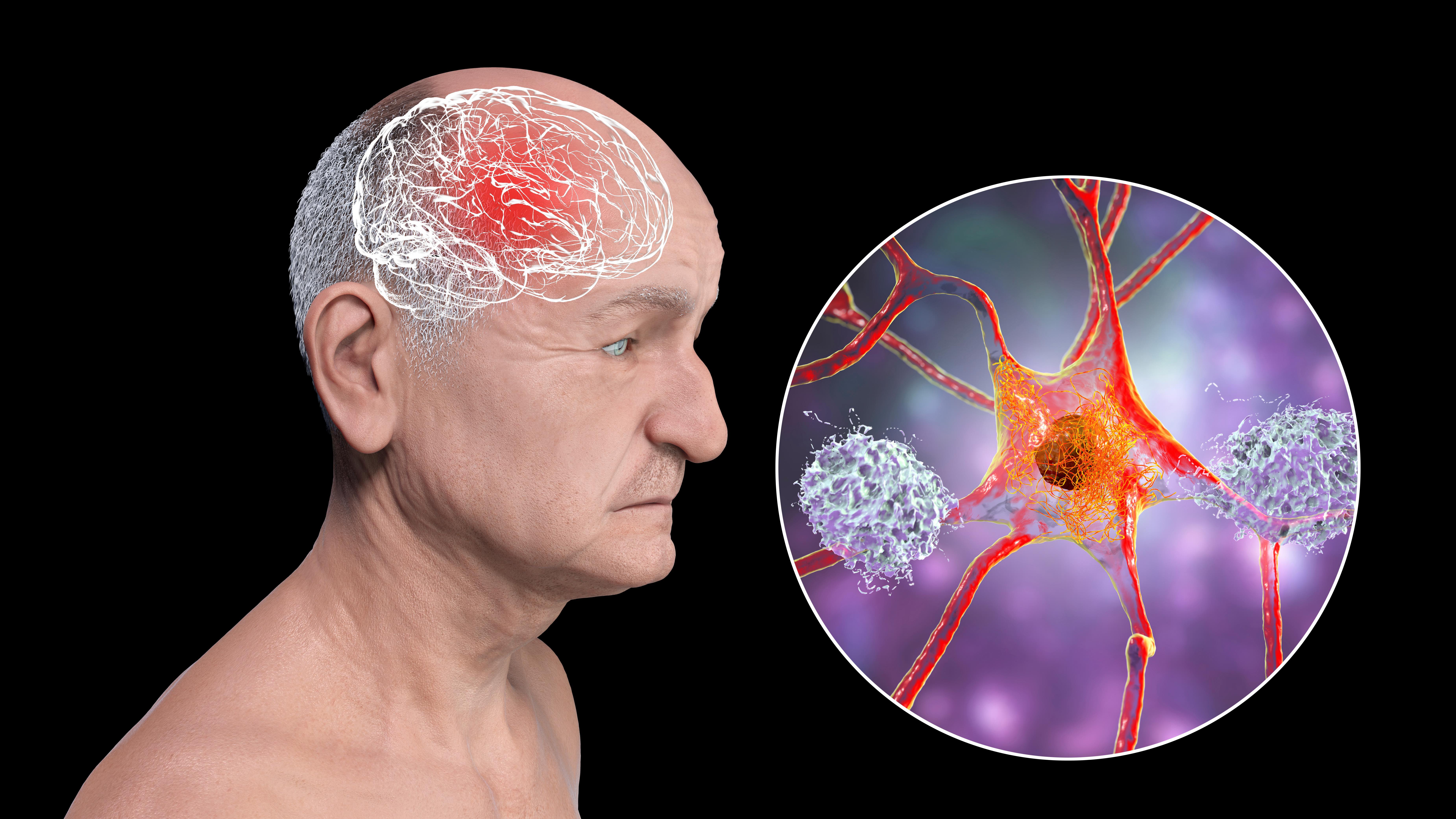Managing Vascular Parkinsonism: Treatment and Therapy Options
Originally Published Feb 28, 2023
Vascular Parkinsonism, also known as Vascular Parkinson's Disease, is a rare form of Parkinsonism caused by damage to the blood vessels in the brain. This condition can cause movement problems similar to Parkinson's disease, but with some distinct differences. In this article, we will discuss the causes, symptoms, diagnosis, and treatment of Vascular Parkinsonism in more detail.
What is Vascular Parkinsonism?
Vascular Parkinsonism is a movement disorder caused by damage to the blood vessels in the brain. This damage can lead to the death of brain cells, which can result in problems with movement and balance. While it shares many similarities with Parkinson's disease, there are some key differences.
Parkinson's disease is caused by the degeneration of brain cells that produce the neurotransmitter dopamine, while Vascular Parkinsonism is caused by damage to blood vessels in the brain. Additionally, the progression of symptoms in Vascular Parkinsonism tends to be more rapid than in Parkinson's disease.
Causes of Vascular Parkinsonism
Vascular Parkinsonism is caused by damage to the blood vessels in the brain, which can be the result of a variety of underlying conditions. Some of the most common causes of Vascular Parkinsonism include:
Stroke: When blood flow to the brain is blocked or interrupted, it can lead to a stroke, which can cause damage to the blood vessels in the brain.
Small vessel disease: This condition occurs when the small blood vessels in the brain become damaged or blocked, leading to problems with blood flow and oxygen delivery to the brain. This will cause small vessel disease.
Atherosclerosis: Atherosclerosis is a condition in which the arteries become clogged with plaque, which can lead to reduced blood flow to the brain.
Signs and Symptoms of Vascular Parkinsonism
The signs and symptoms of Vascular Parkinsonism can vary from person to person, but some common symptoms include:
Tremors, or shaking in the hands, arms, or legs Stiffness or rigidity in the arms or legs Difficulty with balance and coordination Slowed movements Problems with speech or swallowing.
Diagnosis of Vascular Parkinsonism
In addition to medical history, physical exam, and imaging studies, the diagnostic process for Vascular Parkinsonism may also involve ruling out other conditions that can cause similar symptoms, such as Parkinson's disease, multiple system atrophy, or progressive supranuclear palsy. The doctor may also order blood tests to check for other underlying health conditions that may be contributing to the symptoms.
During the physical exam, the doctor may ask the patient to perform various tasks to evaluate their motor skills, such as walking, standing up from a chair, and reaching for objects. They may also assess the patient's balance and coordination, as well as their reflexes and muscle tone. The doctor will also ask about any other symptoms the patient may be experiencing, such as cognitive problems or urinary incontinence.
Imaging studies such as MRI or CT scan can reveal any damage to the blood vessels in the brain, which can help confirm a diagnosis of Vascular Parkinsonism. However, it's important to note that not all patients with Vascular Parkinsonism will have visible changes on imaging studies, and a diagnosis may still be made based on a combination of clinical presentation and exclusion of other possible conditions. Ultimately, the diagnosis of Vascular Parkinsonism requires a thorough evaluation by a qualified healthcare provider and may require collaboration with a neurologist or other specialists.

Life Expectancy and End-Stage Vascular Parkinsonisn
The life expectancy for those with Vascular Parkinsonism can vary depending on the severity of their symptoms and how quickly the disease progresses. In some cases, the disease can progress rapidly, leading to severe disability or even death. In end-stage Vascular Parkinsonism, symptoms can include severe tremors, difficulty swallowing, and loss of mobility. Hospice care may be necessary at this stage to provide comfort care and manage symptoms.
Is Vascular Parkinsonism Hereditary?
The cause of Vascular Parkinsonism is not fully understood, but it is generally not considered to be hereditary in the same way that Parkinson's disease can be. However, some genetic factors may increase the risk of developing the condition. In particular, individuals with a history of high blood pressure, heart disease, or stroke may be more likely to develop Vascular Parkinsonism. Additionally, certain genetic mutations have been associated with an increased risk of cerebrovascular disease, which can contribute to Vascular Parkinsonism. While Vascular Parkinsonism is not typically considered a hereditary condition, individuals with a family history of cerebrovascular disease or other related conditions may have an increased risk of developing the disorder.
Vascular Parkinsonism and Dementia
Vascular Parkinsonism is also a risk factor for developing vascular dementia, which is caused by reduced blood flow to the brain. Vascular dementia can cause a range of cognitive and behavioral symptoms, including difficulty with memory, language, and problem-solving. In some cases, the symptoms of vascular Parkinsonism and vascular dementia can overlap, making it difficult to distinguish between the two conditions.
It is important for individuals with Vascular Parkinsonism to work closely with their healthcare provider to monitor their cognitive function and to address any changes or concerns as soon as possible. Treatment may involve medications, lifestyle changes, and other interventions aimed at managing symptoms and slowing disease progression.
Treatment of Vascular Parkinsonism
There is currently no cure for Vascular Parkinsonism, and treatment is focused on managing symptoms and improving quality of life. Treatment options may include:
Medications
There are several medications used to treat Parkinson's disease that can also be used to manage symptoms of Vascular Parkinsonism, such as levodopa, dopamine agonists, and MAO-B inhibitors. These medications can help improve movement and reduce tremors.
Allied Health Services
Physio Inq is a provider of physiotherapy, occupational therapy, and speech pathology services to assist with vascular Parkinsonism.
Physiotherapy is an essential aspect of the treatment plan, as it can help improve balance, coordination, and flexibility to reduce the risk of falls and improve overall mobility. Physio Inq offers mobile or in-home physiotherapy services, which are especially beneficial for individuals with mobility limitations or who prefer the privacy and one-on-one attention that comes with in-home physical therapy. During a physiotherapy session, the physiotherapist will work with the patient to develop a customized treatment plan based on their specific needs and abilities.
Occupational therapy is another form of rehabilitation that focuses on helping individuals perform daily activities and tasks. For people with vascular Parkinsonism, occupational therapy can be especially beneficial because the condition often affects their ability to perform everyday tasks such as dressing, grooming, and eating. Physio Inq's occupational therapists can travel to an individual's home, workplace, or community setting to provide therapy services, which can be especially helpful for people with vascular Parkinsonism who may have difficulty traveling to a therapy clinic due to mobility or transportation issues.
Their occupational therapists work closely with individuals with vascular Parkinsonism to develop individualized treatment plans that address their specific needs and goals.
Speech therapy can play a vital role in managing the speech and swallowing difficulties associated with vascular Parkinsonism. A speech therapist can help individuals with vascular Parkinsonism by teaching them exercises to improve their speech and swallowing function. Physio Inq also has a team of speech therapists who can provide specialized care to individuals with vascular Parkinsonism. Our speech therapists have experience in working with a range of neurological conditions, including Parkinson's disease. They can also provide education and training to individuals with vascular Parkinsonism and their caregivers on strategies to improve communication and swallowing function in daily life. While speech therapy may not be able to cure vascular Parkinsonism or reverse its effects on speech and swallowing function, it can help manage symptoms and improve quality of life.
Surgery
In some cases, surgery may be recommended to improve symptoms of Vascular Parkinsonism. One option is deep brain stimulation (DBS), a surgical procedure in which electrodes are implanted in the brain and connected to a device that can deliver electrical impulses to the brain to help control movement.

Life Expectancy and End-Stage Vascular Parkinsonism
The life expectancy for individuals with Vascular Parkinsonism can vary depending on the severity of their symptoms and how quickly the disease progresses. In some cases, the disease can progress rapidly, leading to severe disability or even death. In end-stage Vascular Parkinsonism, symptoms can include severe tremors, difficulty swallowing, and loss of mobility. Hospice care may be necessary at this stage to provide comfort care and manage symptoms.
Vascular Parkinsonism and Dementia
While Vascular Parkinsonism is primarily a movement disorder, it can also lead to cognitive problems, such as memory loss and difficulty with thinking and decision-making. This is because damage to the blood vessels in the brain can also affect areas of the brain responsible for cognitive function. In some cases, Vascular Parkinsonism can also lead to vascular dementia, a type of dementia caused by reduced blood flow to the brain. It is important for individuals with Vascular Parkinsonism to undergo regular cognitive assessments to monitor any changes in cognitive function.
Can You Drive with Vascular Parkinsonism?
One of the primary symptoms of Vascular Parkinsonism is difficulty with movement, including tremors, stiffness, and slowness of movement. These symptoms can affect a person's ability to drive safely.
Driving requires a complex set of motor skills, including coordination, reaction time, and decision-making. People with Vascular Parkinsonism may experience a decline in these skills, which can increase their risk of accidents on the road. It's important for individuals with Vascular Parkinsonism to talk with their doctor about their driving abilities and to follow any recommendations or restrictions that are put in place.
In some cases, it may be necessary to stop driving altogether. This can be a difficult decision for individuals with Vascular Parkinsonism, as driving may be an important part of their independence and daily life. However, it's important to prioritize safety on the road, both for the person with Vascular Parkinsonism and for other drivers and pedestrians. If driving is no longer an option, alternative transportation options should be explored, such as public transportation or ride-sharing services.
Vascular Parkinsonism is a rare form of Parkinsonism caused by damage to the blood vessels in the brain. While it shares many similarities with Parkinson's disease, there are some key differences, such as the more rapid progression of symptoms. Diagnosis can be challenging, as there is no specific test for Vascular Parkinsonism, but a combination of medical history, physical exam, and imaging studies can help confirm a diagnosis.
Allied health services such as physiotherapy, occupational therapy, and speech therapy can be highly effective in managing symptoms and improving daily functioning. If you or a loved one has been diagnosed with Vascular Parkinsonism, it's important to work closely with a team of healthcare professionals, including allied health practitioners like from Physio Inq, to develop an individualized treatment plan that meets your unique needs and goals.
With proper care and management, individuals with Vascular Parkinsonism can maintain their independence, maximize their quality of life, and enjoy meaningful activities and relationships for years to come.
it is important for those with the condition to undergo regular cognitive assessments and to discuss their driving abilities with their doctor.
Disclaimer
The information provided on this blog is intended for educational and informational purposes only. It is not intended to be a substitute for professional advice or treatment. Always seek the advice of a qualified professional with any questions you may have regarding a medical condition. Never disregard professional medical advice or delay in seeking it because of something you have read on this blog.


